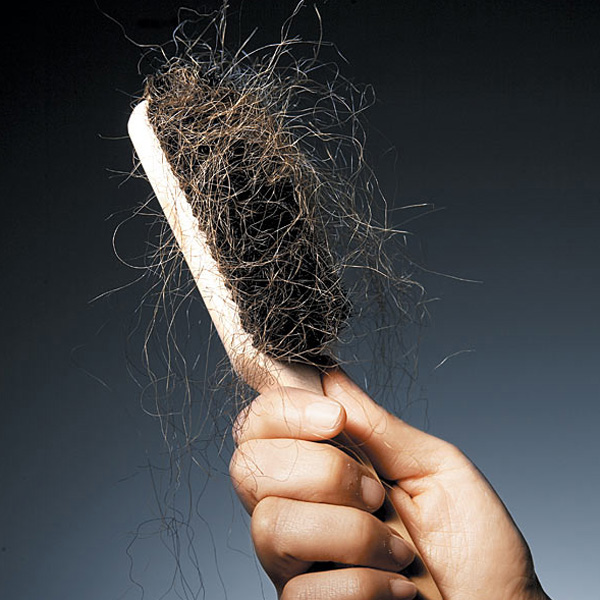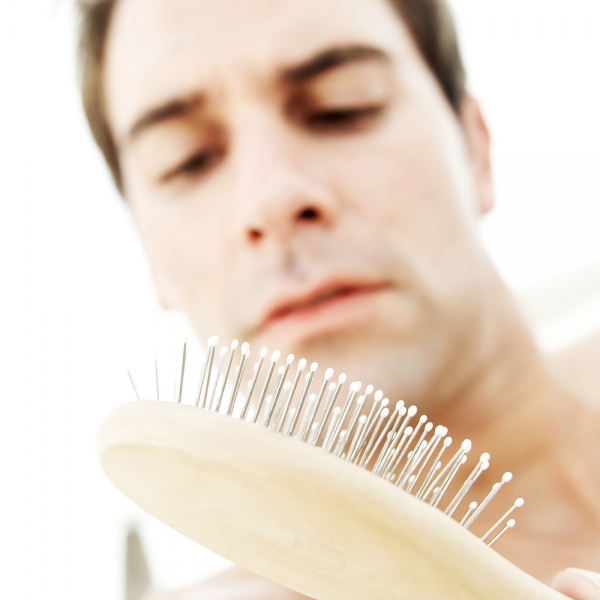Hearing loss is one of the most common conditions affecting older adults. Roughly one-third of Americans over 60 and 40 to 50 percent of those 75 and older have hearing loss.
People with hearing loss find it difficult to talk with friends and family. They may also have trouble understanding a doctor’s advice, responding to warnings, and hearing doorbells and alarms.
Hearing loss comes in many forms. It can range from a mild loss in which a person misses certain high-pitched sounds, such as the voices of women and children, to a total loss of hearing. It can be hereditary or it can result from disease, trauma, certain medications, or long-term exposure to loud noise.
There are two general categories of hearing loss. Sensor neural hearing loss occurs when there is damage to the inner ear or the auditory nerve. This type of hearing loss is permanent.
Conductive hearing loss occurs when sound waves cannot reach the cochlea. The cause may be earwax build-up, fluid, or a punctured eardrum. Medical or surgical treatment can usually restore conductive hearing loss.
One form of hearing loss, presbycusis, comes on gradually as a person ages. Presbycusis can occur because of changes in the inner ear, auditory nerve, middle ear, or outer ear. Some of its causes are aging, loud noise, heredity, head injury, infection, illness, certain prescription drugs, and circulation problems such as high blood pressure.
Presbycusis commonly affects people over 50, many of whom are likely to lose some hearing each year. Having presbycusis may make it hard for a person to tolerate loud sounds or to hear what others are saying.
Tinnitus, also common in older people, is the ringing, hissing, or roaring sound in the ears frequently caused by exposure to loud noise or certain medicines. Tinnitus is a symptom, not a disease, so it can accompany any type of hearing loss.
Tinnitus can also be a sign of other important health problems, such as allergies and problems in the heart and blood vessels. Tinnitus can come and go, or it can persist or stop altogether.
Some people may not want to admit they have trouble hearing. Older people who can’t hear well may become depressed or withdraw from others to avoid feeling frustrated or embarrassed about not understanding what is being said. It is easy to mistakenly call older people confused, unresponsive, or uncooperative just because they don’t hear well.
Hearing problems that are ignored or untreated can get worse. If you have a hearing problem, you can get help. See your doctor. Hearing aids, special training, certain medicines, and surgery are some of the choices that can help people with hearing problems.
Symptoms and Diagnosis
Some people may have a hearing problem without realizing it. Others might think they have a problem, but are too embarrassed to tell their doctor, friends, or family. You can help identify a possible hearing problem by asking yourself some key questions and, if necessary, having your hearing checked by a doctor.
If a hearing loss is ignored or untreated, it can get worse. But a hearing loss that is identified early can be helped through treatment, such as hearing aids, certain medicines, and surgery.
Ask yourself the following questions. If you answer “yes” to three or more of these questions, you could have a hearing problem and may need to have your hearing checked by a doctor.
- Do I have a problem hearing on the telephone?
- Do I have trouble hearing when there is noise in the background?
- Is it hard for me to follow a conversation when two or more people talk at once?
- Do I have to strain to understand a conversation?
- Do many people I talk to seem to mumble or not speak clearly?
- Do I misunderstand what others are saying and respond inappropriately?
- Do I often ask people to repeat themselves?
- Do I have trouble understanding the speech of women and children?
- Do people complain that I turn the TV volume up too high?
- Do I hear a ringing, roaring, or hissing sound a lot?
- Do some sounds seem too loud?
If you think that you have a hearing problem, schedule an appointment with your family doctor. In some cases, he or she can identify the problem and prescribe treatment.
Your doctor may refer you to an otolaryngologist. This doctor and surgeon has special training in problems of the ear, nose, throat, head, and neck.
An otolaryngologist will try to find out why you have a hearing loss and offer treatment options. He or she will ask you for your medical history, ask if other family members have hearing problems, do a thorough exam, and prescribe any needed tests.
Your doctor may also recommend that you visit an audiologist. An audiologist is a health professional who can identify and measure hearing loss. The audiologist will use a device called an audiometer to test your ability to hear sounds of different pitch and loudness.
The tests that an audiologist performs are painless. Audiologists do not prescribe drugs or perform surgery. If you need a hearing aid, an audiologist can help you choose the right one.
Causes and Prevention
Hearing loss happens for many reasons. Some people lose their hearing slowly as they age. This condition is called presbycusis. Doctors do not know why presbycusis happens, but it seems to run in families.
Another cause is the ear infection otitis media, which can lead to long-term hearing loss if it is not treated.
Hearing loss can also result from taking certain medications. “Ototoxic” medicines damage the inner ear, sometimes permanently. Some antibiotics are ototoxic. Even aspirin can cause problems, but they are temporary. Check with your doctor if you notice a problem while taking a medication.
Heredity also is a cause of hearing loss, but not all inherited forms of hearing loss take place at birth. Some forms can show up later in life. In otosclerosis, which is thought to be a hereditary disease, an abnormal growth of bone prevents structures within the ear from working properly. A severe blow to the head also can cause hearing loss.
One of the most common causes of hearing loss is loud noise. Loud noise can permanently damage the inner ear. Loud noise also contributes to presbycusis, or age-related hearing loss, and tinnitus, which is a ringing, buzzing, or roaring sound in the ears.
More than 30 million Americans are exposed to damaging noise levels every day. Already, 10 million Americans have permanently damaged their hearing due to exposure to loud noise. In fact, more and more baby boomers are experiencing hearing loss sooner in life than their parents and grandparents did.
Noise-induced hearing loss is 100 percent preventable. You can protect your hearing by paying attention to noises above 90 decibels in loudness, which can damage your ears. These include gas lawnmowers, snowblowers, motorcycles, firecrackers, and loud music.
Lower the volume on portable stereos and televisions. When you are involved in a loud activity, wear earplugs or other hearing protective devices. Be sure to protect children as well.
Although awareness of noise levels is important, you should also be aware of how far away you are from loud noise and how long you are exposed to it. Avoid noises that are too loud — 90 decibels and above, too close, and last too long.
There are other ways to prevent hearing loss. If earwax blockage is a problem for you, ear, nose, and throat doctors recommend using mild treatments such as mineral oil, baby oil, glycerin, or commercial ear drops to soften earwax. If you suspect that you may have a hole in your eardrum, however, you should consult a doctor before using such products.
The ear infection otitis media is most common in children, but adults can get it, too. You can help prevent otitis media by washing your hands frequently. Also, get a flu shot every year to stave off respiratory infections. If you still get an ear infection, see a doctor immediately before it becomes more serious.
Do you take medication? If so, ask your doctor if your medicine is ototoxic, or damaging to the ear. Ask if other drugs can be used instead. If not, ask if the dose can be safely reduced. Sometimes it cannot. However, your doctor will help you get the medicine you need while trying to reduce unwanted side effects.
Treatment and Research
Your doctor can recommend strategies to help reduce the effects of a hearing loss. Scientists are studying ways to develop new, more effective methods to treat and prevent hearing loss.
Many people who have a hearing loss wear a hearing aid. A hearing aid is an electronic, battery-operated device that makes sounds louder to the wearer. Unfortunately, only 20 percent of people who could benefit from a hearing aid actually wear one.
Hearing aids come in many shapes, sizes, and styles. Some hearing aids fit inside the outer ear or the ear canal, while others fit behind the ear. People with extreme hearing loss may wear a body aid, a larger hearing aid attached to a belt or worn in a pocket and connected by a wire to the ear.
Hearing aids can be analog or digital. Some analog aids are custom-built to meet a person’s hearing needs. More advanced analog models can be adjusted with a computer to suit a number of environments, such as a room with a lot of background noise.
Digital hearing aids use a computer chip to process sounds, and are the most flexible in adjusting to different environments. They are also the most expensive.
An audiologist can help you determine if a hearing aid, or even two hearing aids, is the right treatment for you. Wearing two hearing aids may help balance sounds, improve your understanding of words in noisy situations, and make it easier to locate the source of sounds.
Other devices also can help you hear in certain listening environments. TV listening systems help you enjoy television or radio without being bothered by other sounds around you. Some hearing aids can be plugged directly into TVs, stereos, microphones, and personal FM systems to help you hear better.
Some telephones work with certain hearing aids to make sounds louder and remove background noise. And some auditoriums, movie theaters, and other public places are equipped with special sound systems that send sounds directly to your ears.
Alerts such as doorbells, smoke detectors, and alarm clocks can give you a signal that you can see or a vibration that you can feel. For example, a flashing light can let you know someone is at the door or on the phone.
If your hearing loss is severe and of a certain type, your doctor may suggest that you talk to an otolaryngologist — a surgeon who specializes in ear, nose, and throat diseases — about a cochlear implant.
A cochlear implant is a small electronic device that the surgeon places under the skin and behind the ear. The device picks up sounds, changes them to electrical signals, and sends them past the non-working part of the inner ear and on to the brain.
A cochlear implant does not restore or create normal hearing. Instead, it can help people who are deaf or who have a severe hearing loss be more aware of their surroundings and understand speech, sometimes well enough to use the telephone.
But learning to interpret sounds from the implant takes time and practice. A speech-language pathologist and audiologist can help you with this part of the process.
Researchers are studying the causes of hearing loss as well as new treatments. For example, they are studying ways to improve hearing aids so that wearers can hear sounds more clearly with little background noise.
They are also studying how to improve cochlear implants to enhance a person’s ability to understand sounds. And they are discovering how fluids change in the inner ear as a person gets older, which may affect overall hearing ability.




5
Nice article. I was able to send this to some dentist I know that could use this on their blog..